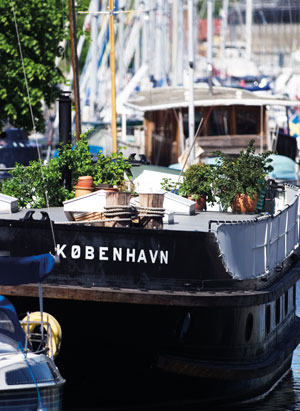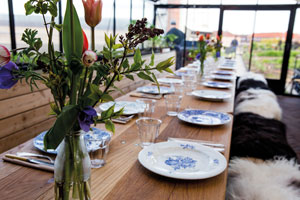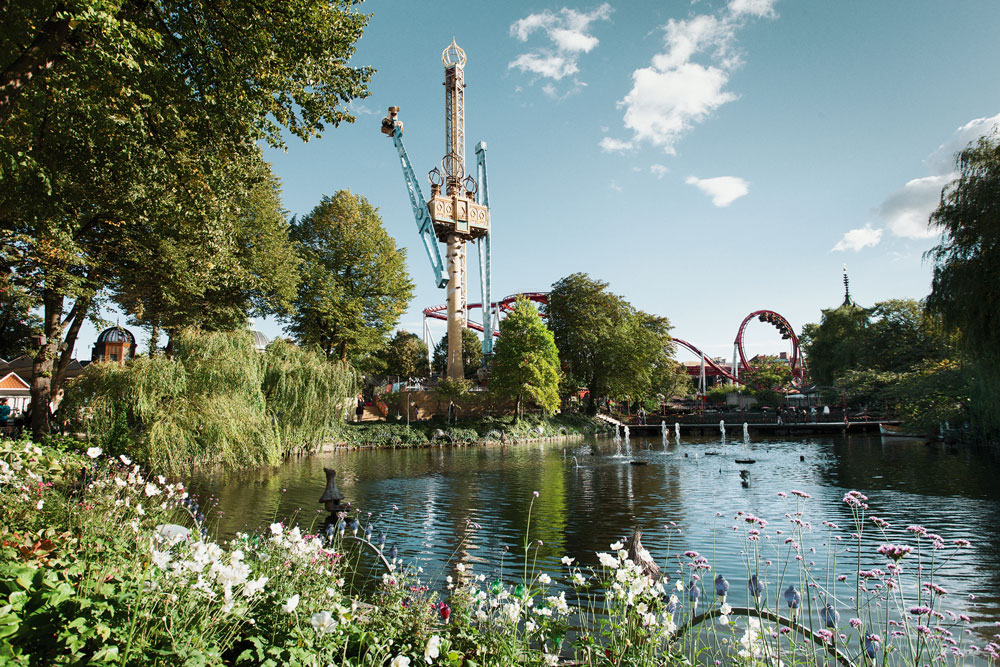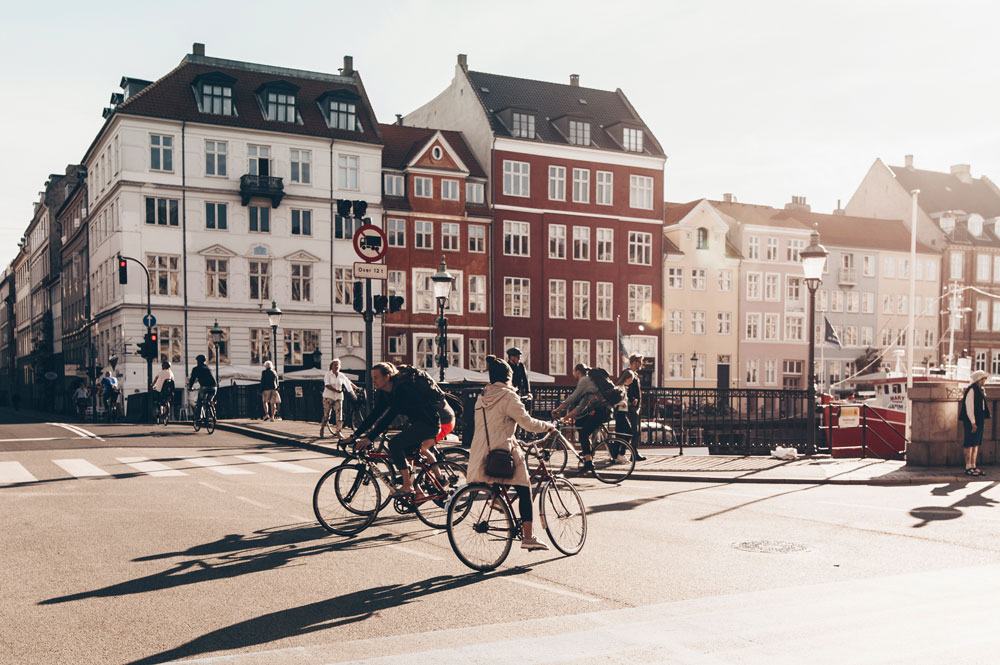What Londoners can learn from the Danish work-life balance

Many Londoners have just one wish, it seems, and that is to spend more time doing the stuff they love. It sounds so simple, yet in today’s hectic world, balance seems impossible. Life feels like it’s passing us by as we juggle careers, families and socialising – forever taking on more commitments. But it isn’t this way everywhere.
Denmark is continuously voted the world’s happiest country (a scientific paper even suggested their babies cry less than British ones do) and now a report by the OECD (Organisation for Economic Co-operation and Development) ranks the Danes best at work-life balance.
So how do they do it? I head to Copenhagen with my husband, Gary, and 18-month-old daughter, Mia, to find out.

Picture: Morten Jerichau
SCHOOL’S OUT
It’s Friday ‘rush hour’ where we’re staying in Vesterbro in the Meatpacking District, with scores of workers filling the streets on bicycles to start their weekend.
But there’s a complete absence of panic to get as quickly as possible to a bar – as might be the case in London – or anywhere. Instead there’s a laid back atmosphere as families stroll with kids in tow and friends cycle alongside one another chatting, some even cradling a beer.
With just 2% of employees working more than 48 hours a week compared with the UK figure of 13% (EU average is 15%), the Danes spend two-thirds of their day (16 hours) eating, sleeping and at leisure. Unlike us Brits, they haven’t been living for Friday night all week.
FAMILY VALUES
One evening, my husband and I get chatting to a Danish mum of three. She’s flabbergasted at his working hours, around the British average, pointing wide-eyed to our daughter: ‘So her father sees her only for a few minutes each day?’
By contrast, Danish parents get 52 weeks paid leave to share between them, which makes for a more balanced family life, and fathers are encouraged to take as much parental leave as possible. Not only that, but kids are guaranteed tax-subsidised daycare from six months, allowing 78% of mothers to return to work.
Helen Russell wrote The Year of Living Danishly: Uncovering The Secrets of the World’s Happiest Country (£8.99, Icon Books) after moving to Denmark in 2013.
‘In a nutshell, Danes prioritise family,’ she says. ‘People work to do a good job then leave, there’s no presenteeism.’ Less work leaves more time for eating, sleeping, leisure – and hygge, which is essentially spending more time doing the things you really like.
Swimming in the open is a popular pastime – head to Islands Brygge Harbour Bath for a dip with the city’s skyline as your backdrop.
Tivoli Gardens is like Kew Gardens, Thorpe Park and the O2 rolled into one. Grandparents, teenagers, parents and grandchildren all while away their time here. Imagine seeing where your teenager spends their Saturday night – and even spending some of it with them!
Fælledparken is better still. While Mia loves ‘doing the bouncy’ on the mini trampolines, teenagers play volleyball and my other half is gripped by a dad’s basketball game. I have a go on some adult swings. There are five-aside football pitches, outdoor chess tables, food vans and plenty of toilets.
This felt like a pimped-up version of our local park. Copenhagen has 125 playgrounds, many with qualified staff offering homework help, workshops and activities.
INDULGE YOURSELF

Picture: Andrea Fjordside Pontoppidan
GRO Spiseri (pictured above) is a rooftop farm at the top of an old car auction house in the heart of Copenhagen’s Climate Quarter.
With a seasonally-changing five-course menu, dishes are made up of locally, organically-grown produce including chickens, eggs and rabbits. Veg, like radishes, asparagus, herbs and lemons, are grown in the grounds, and honey is harvested from the bees.
Dinner is served on sharing plates on a long candlelit table in a greenhouse among the foliage.
We are lucky enough to spend our last night here and it feels like we’re at a friend’s house – one who knows how to throw the best dinner party ever.
It’s heavenly, even though we spend half of it chasing a chicken-obsessed toddler who’d rather peer in the coop behind the kitchen than sit at the table with us. But, I think we may have experienced hygge at last.
LESSONS FOR LONDONERS
- Live like a true Dane. Rent a bike and explore the city on two wheels in a sustainable way.
- Indulge yourself with a trip to the cinema or a massage. Don’t deny yourself time out to do things you enjoy.
- Enjoy a little of what you fancy more often. It doesn’t have to be ‘feast or famine’.
- Take time out to spend special days with friends and family, enjoying activities that are enjoyable for everyone.
- Taking a break isn’t time wasted – better to relax and refresh than become stressed out.

Tivoli Gardens – “like Kew Gardens, Thorpe Park and the O2 rolled into one”. Picture: Anders Bøgild
Author Sofia Zagzoule stayed in the Anderson Hotel in Copenhagen
Read more: A guide to the outdoor activities to do in London












